Description
A Funky, Deep Plum, Tart-Cocoa & Almonds.
Widely believed to be the origin of the Coffea arabica plant, Ethiopia remains a powerhouse in the coffee world to this day.
Its deep plummy wine notes, widely believed to be the origin of the Coffea arabica plant, Ethiopia remains a powerhouse in the coffee world to this day, sweet, smooth and floral with tart cocoa, almond and berry flavours.
In 2006 Daye Bensa Coffee was established by two brothers – Asefa & Mulugeta Dukamo who have been working within the Sidama region in coffee. They operate 16 washing stations and 4 dry mills within Sidama. The Durato Bombe is collected from 626 farmers in Durato of Bombe Kebele (village) in the Bensa Woreda (district) of the Sidama zone. The village shares it’s name with the mountain of Bombe on which the coffee grows. Meticulous processing occurs at the Qunqna mill where it is sun dried as whole cherry for 10-15 days creating a fruit-forward and complex flavor profile.
Origin Background;
Ethiopia is the world’s seventh largest coffee producer, and the top producer on the African continent. Residents of the country account for half of its consumption, and the other half is exported to major markets like the EU, North America, and East Asia. Production methods remain mostly unchanged, with most cultivation and drying done by hand.
The government’s role in Ethiopia’s coffee production is unique, with an established Coffee and Tea Authority that acts as a part of the federal government. It sets regulations that fix prices washing stations must pay to buy beans from farmers, requires extended licensing in the domestic market, and maintains the previous regime’s decision to turn all washing stations into farmers cooperatives. It also regulates trademarks on regional names, including Harar, Sidamo, Yirgacheffe, and Limu.
Testi Ayla Washing Station was founded in 2010 and became part of the Testi group in 2016. It now serves about 375 smallholder farmers in the village of Bombe in Sidama, near the Bombe Mountain. Producers here own an average of 2.5 hectares and grow varieties such as Mikicho and Setami, which are local coffees.
Coffees in Ethiopia are typically traceable to the washing station level: The average producer here delivers their cherry to the washing station, where it is blended with other producers’ deliveries and processed as necessary. The Natural coffees are dried on raised beds that are 25 meters long. Drying takes 15-20 days, weather depending.
THE SPECIFICS
Country Ethiopia
Region Bombe, Sidama
Farm 375 smallholder farmers delivering to Testi Ayla Washing Station
Variety Mikicho, Setami
Altitude 2000 MASL
Method Natural
Process Full natural and dried on raised beds
Harvest November – January
Roast Profile Medium-Dark
Barty has spent months perfecting this roast profile with love for you guys, it’s my little way to continue to give back, paying it forward


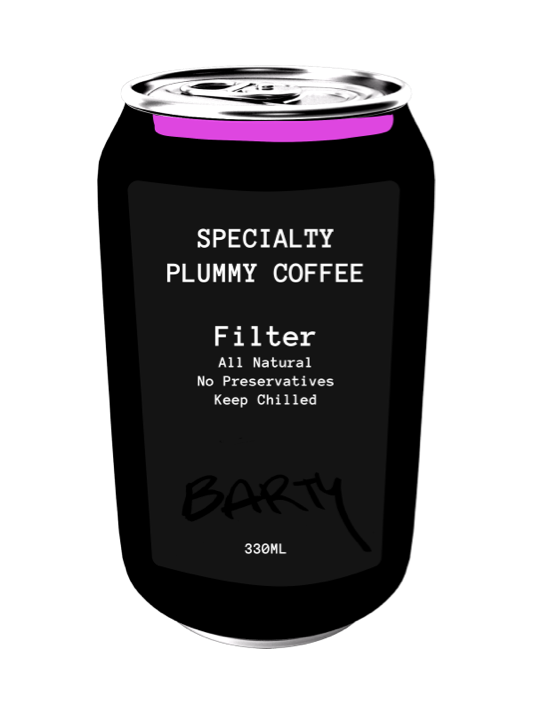
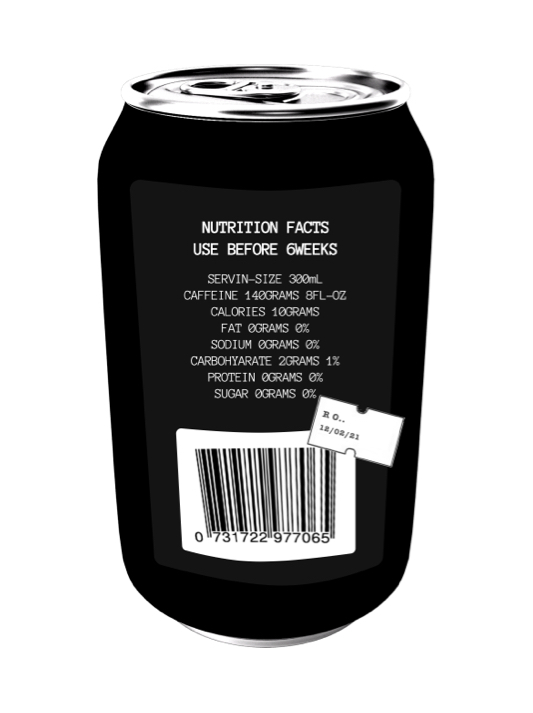
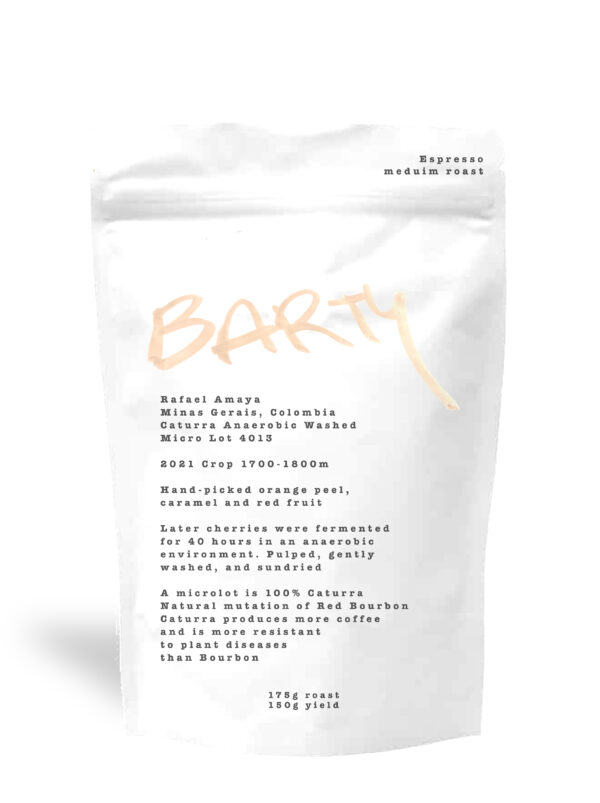
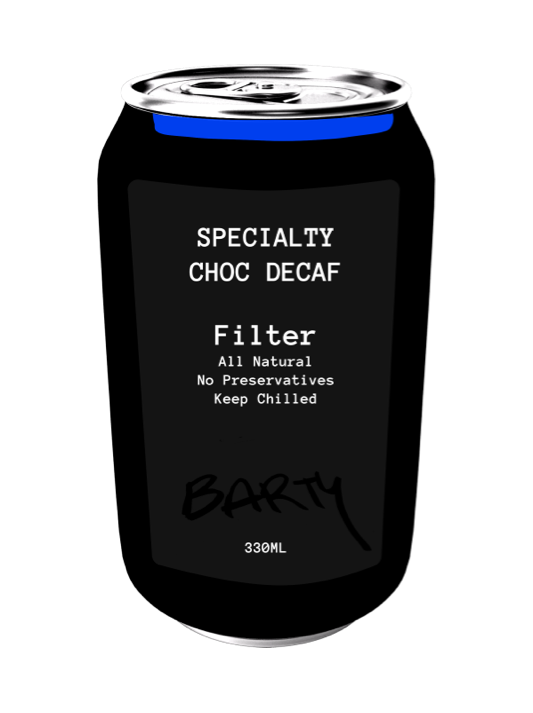
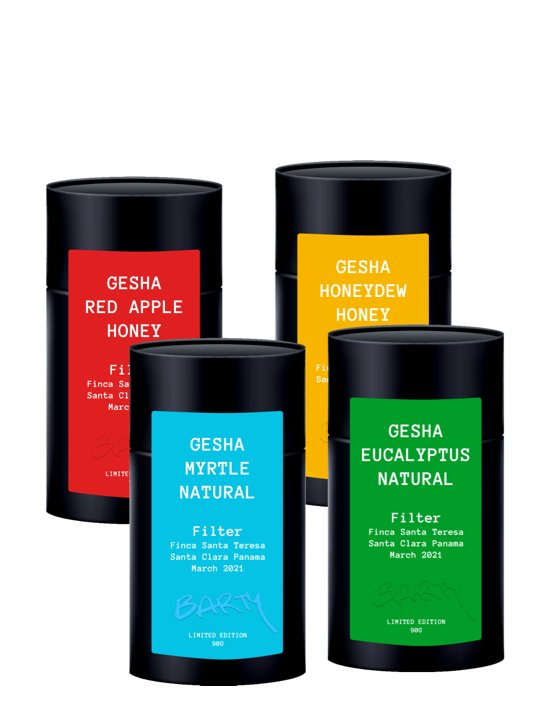
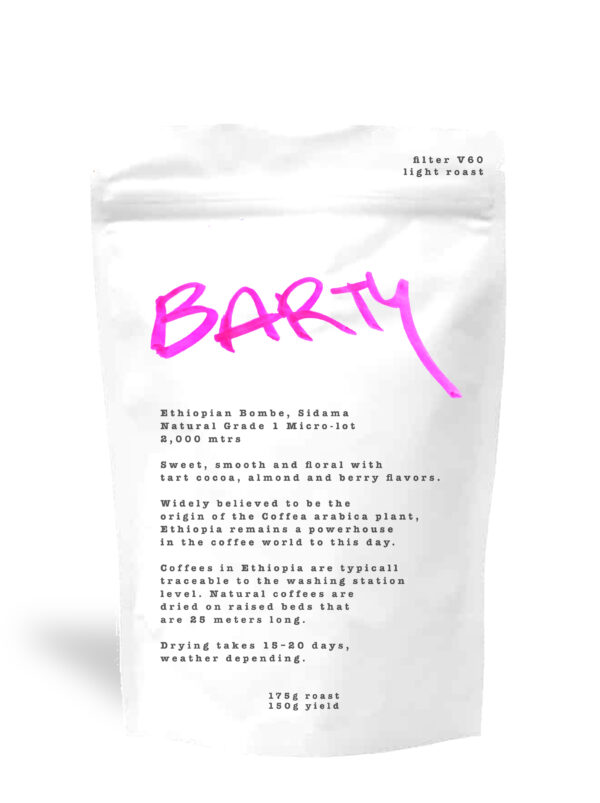
Reviews
There are no reviews yet.